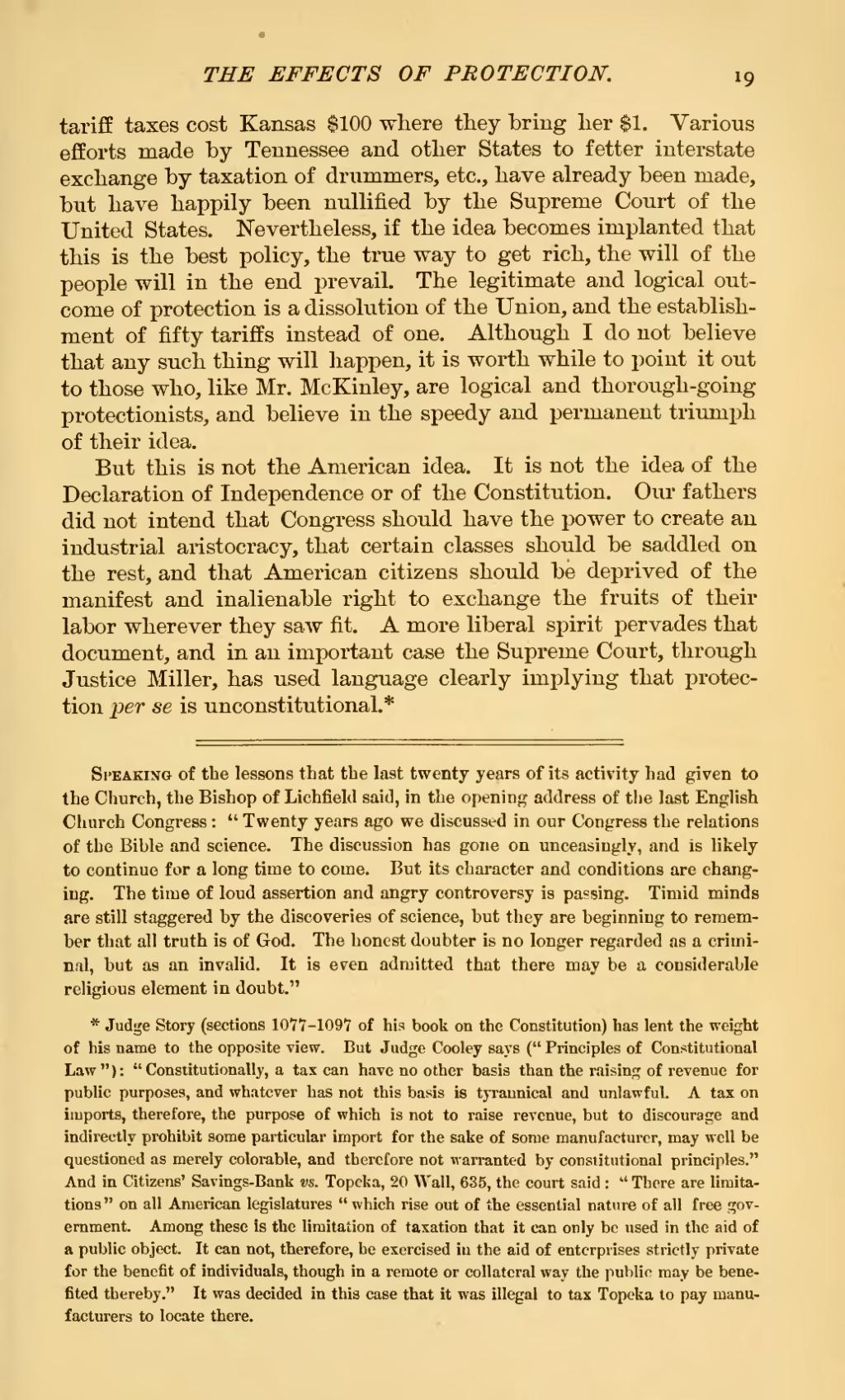tariff taxes cost Kansas $100 where they bring her $1. Various efforts made by Tennessee and other States to fetter interstate exchange by taxation of drummers, etc., have already been made, but have happily been nullified by the Supreme Court of the United States. Nevertheless, if the idea becomes implanted that this is the best policy, the true way to get rich, the will of the people will in the end prevail. The legitimate and logical outcome of protection is a dissolution of the Union, and the establishment of fifty tariffs instead of one. Although I do not believe that any such thing will happen, it is worth while to point it out to those who, like Mr. McKinley, are logical and thorough-going protectionists, and believe in the speedy and permanent triumph of their idea.
But this is not the American idea. It is not the idea of the Declaration of Independence or of the Constitution. Our fathers did not intend that Congress should have the power to create an industrial aristocracy, that certain classes should be saddled on the rest, and that American citizens should be deprived of the manifest and inalienable right to exchange the fruits of their labor wherever they saw fit. A more liberal spirit pervades that document, and in an important case the Supreme Court, through Justice Miller, has used language clearly implying that protection per se is unconstitutional.[1]
- ↑ Judge Story (sections 1077-1097 of his book on the Constitution) has lent the weight of his name to the opposite view. But Judge Cooley says ("Principles of Constitutional Law"): "Constitutionally, a tax can have no other basis than the raising of revenue for public purposes, and whatever has not this basis is tyrannical and unlawful. A tax on imports, therefore, the purpose of which is not to raise revenue, but to discourage and indirectly prohibit some particular import for the sake of some manufacturer, may well be questioned as merely colorable, and therefore not warranted by constitutional principles." And in Citizens' Savings-Bank vs. Topeka, 20 Wall, 635, the court said: "There are limitations" on all American legislatures "which rise out of the essential nature of all free government. Among these is the limitation of taxation that it can only be used in the aid of a public object. It can not, therefore, be exercised in the aid of enterprises strictly private for the benefit of individuals, though in a remote or collateral way the public may be benefited thereby." It was decided in this case that it was illegal to tax Topeka to pay manufacturers to locate there.

